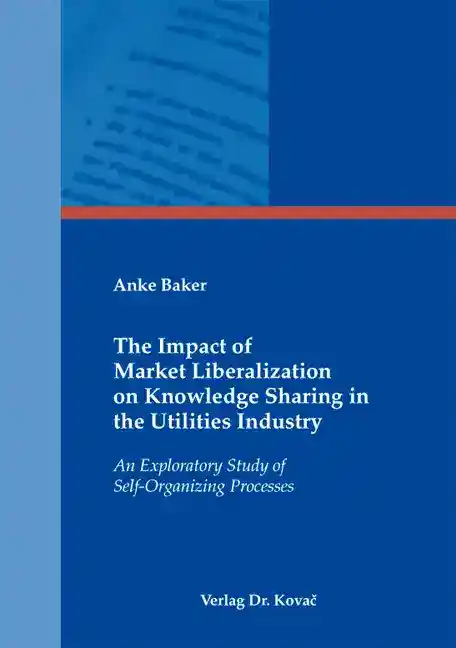Anke BakerThe Impact of Market Liberalization on Knowledge Sharing in the Utilities Industry
An Exploratory Study of Self-Organizing Processes
Strategisches Management, Band 98
Hamburg 2010, 222 Seiten
ISBN 978-3-8300-5065-0 (Print)
ISBN 978-3-339-05065-6 (eBook)
Zum Inhalt
The book originates from the organizational transformation processes in the German utilities industry that were triggered by market liberalization. It approaches the issue of violated trust within the utilities industry from an intra-organizational perspective. Trust is a key component of psychological contracts that, in turn, vastly influence the behaviour and commitment of employees. There are still only a few studies that address the situational context surrounding a psychological contract and its violation, although previous research clearly points in this direction. The existing concept of (broken) psychological contracts as suggested by Raja and his colleagues (2004) has been chosen as the basis for a new conceptual model. This explorative study expands their notion by including communities of practice as a potential element to leverage the negative consequences of broken psychological contracts and to eventually overcome the feelings of violation. Communities of practice represent an important contextual variable. Within organizations, violations of the psychological contract between employees and management have been identified as an important component serving to undermine trust. The increasingly competitive environment changes the internal organizational atmosphere – potentially resulting in unwillingly breaking the psychological contract and causing feelings of violation. As trust in the organization is lost, voluntary social groupings such as communities of practice are likely to become more prominent as intra-organizational shelters. They foster both trust and knowledge sharing. As knowledge has widely been acknowledged to be a core competitive capability for organizations, knowledge sharing can be interpreted as a highly desirable organizational behaviour with potential impact on a company’s competitiveness. The epistemological perspective of knowledge as a social construct is adopted for this paper as it allows for an integration of all theoretical concepts. This thesis argues that communities of practice can mediate between the feelings of violation and a corresponding undesirable organizational behaviour, i.e. reduced knowledge sharing.
